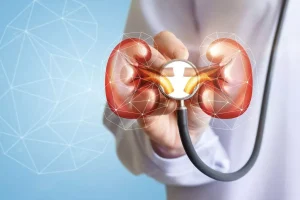
This prescription device has a concealed needle that injects a single dose of epinephrine when you press it against your thigh. Avoid the beverage or beverages that seem to cause your reaction until your doctor’s appointment. If you do drink a beverage that causes a mild reaction, over-the-counter antihistamines may help relieve symptoms. For a more severe reaction—severe skin reaction, weak pulse, https://ecosoberhouse.com/ vomiting, or trouble breathing—seek emergency help right away. However, in some cases, what seems to be alcohol intolerance may be your reaction to something in an alcoholic beverage—such as chemicals, grains, or preservatives. Reducing intake or stopping drinking may help a person feel more in control of their consumption and avoid experiencing a reaction or symptoms related to their alcohol use.
Do Beer and Wine Cause Worse Hangovers Than Spirits?
“If you start to feel sick after drinking a small amount of alcohol, or notice your face, chest and neck becomes flushed, this can be a sign of alcohol intolerance,” says Parker. Alcohol intolerance happens when the body doesn’t have the right enzymes to metabolize (break down) the toxins in the alcoholic beverage. It’s caused by inherited or genetic traits that are commonly found in the Asian population, says Parker. However, if they want to have tests to check their alcohol intolerance, they can contact a doctor to ensure they are drinking safely.
What are the Signs of Alcohol Intolerance?
A skin prick test should take place in a medical setting in case of a severe allergic reaction. There are several ways for a doctor to diagnose an alcohol allergy or intolerance, including the approaches below. If someone experiences a severe allergic reaction, they should go to the emergency room immediately. If they do not have an epinephrine injection to treat anaphylaxis right away, it could be fatal. If a person thinks they have an alcohol allergy, they should eliminate alcohol from their diet and consult with a healthcare professional. We will also look at what causes alcohol allergies and review the differences between alcohol allergy and intolerance.
How can you tell if you’re intolerant to alcohol?
Symptoms of alcohol intolerance appear within minutes of alcohol consumption. Common signs include facial flushing, nausea, rapid heartbeat, headache, and nasal congestion. These symptoms are often mistaken for a simple allergic reaction; however, they are indicative of the body’s inability to metabolize alcohol effectively. In some cases, more severe reactions will occur, such as worsening of asthma or even anaphylaxis, especially when combined with specific allergens found in certain alcoholic beverages. Alcohol intolerance can cause immediate, unpleasant reactions after you drink alcohol.


However, allergies to certain ingredients in alcohol can sometimes resemble alcohol intolerance. Unfortunately, nothing can prevent reactions to alcohol or ingredients in alcoholic beverages. To avoid a reaction, avoid alcohol or the particular substance that causes your reaction.
Signs You Are Developing Alcohol Intolerance

However, in people with an alcohol allergy, the system mistakenly produces antibodies to attack alcohol following exposure to the substance, triggering various symptoms. If you drink a beverage that causes a mild reaction, over-the-counter antihistamines might help relieve symptoms. However, for a severe skin reaction, weak pulse, vomiting or trouble breathing, seek emergency help right away, as you could be having an anaphylactic reaction.
Featured Articles
The most common signs and symptoms of alcohol intolerance are stuffy nose and skin flushing. Alcohol intolerance is caused by a genetic condition in which the body is unable to break down alcohol efficiently. The only way to prevent alcohol intolerance reactions is to avoid alcohol. If you have a stuffy nose but don’t experience other common symptoms, alcohol intolerance may not be the culprit.
Having a mild intolerance to alcohol or something else in alcoholic beverages might not require a trip to a doctor. Simply avoid alcohol, limit how much you drink or avoid certain types of alcoholic beverages. So drinking lower amounts of alcohol during lockdown could mean that your liver is less what causes alcohol intolerance effective at “clearing” alcohol from the body. As a result, you’ll feel the intoxicating effects even from lower amounts of alcohol. Equally, increased alcohol consumption during lockdown could lead to increased metabolic tolerance, where a greater amount of alcohol is needed to feel intoxicated.

Alcohol Withdrawal Symptoms: What Does Detoxing Feel Like? A Timeline
You may not need to see a doctor if you have a mild intolerance to alcohol or something else in alcoholic beverages. You may simply need to avoid alcohol, limit how much you drink, or avoid certain types of alcoholic beverages. However, if you have a serious reaction or severe pain, see your doctor. Also, if your symptoms seem to be linked to an allergy or a medication you’re taking, see your doctor. Managing alcohol intolerance involves making specific lifestyle changes to avoid triggering symptoms.
Peanut Allergy
- For example, an person who typically plays darts sober would likely experience impairment in performance if intoxicated.
- Alcohol intolerance and caffeine intolerance are both metabolic disorders, but they involve different substances and symptoms.
- Additionally, certain medical conditions, such as liver disease or gastrointestinal disorders, will make individuals more susceptible to alcohol intolerance.
- Additionally, medications only help mask symptoms and do not help with the underlying problem.
Anyone can have the enzyme problem that causes alcohol intolerance. People often confuse alcohol intolerance and alcohol allergy, but they aren’t the same condition. “Alcohol sensitivity” is a term that some people use synonymously with alcohol intolerance. If you have alcohol allergy, the only way to avoid symptoms is to avoid alcohol completely. It’s also possible to be allergic to proteins in filling agents, such as egg or shellfish, which manufacturers sometimes use to remove fine particles from alcoholic beverages. Alcohol intolerance can cause an immediate or delayed reaction, with delayed reactions sometimes occurring 20 to 30 minutes after alcohol consumption, according to the ME Association.
